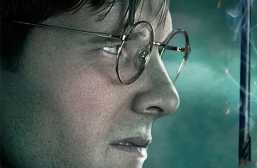Contemporary Film Criticism: A Decline in Standards?
The expansion of social media and other user-friendly online content means film criticism has moved away from written text in newspapers and cinema journals. As Chuck Tryon recently stated 1 “changes that are taking place within the realm of media distribution and consumption, especially as we seek to make sense of an emerging on-demand culture”. As vast quantities of people browse online, film critics both professional and amateur engage with online content to attain large audiences. This is unsurprising since social media sites like YouTube have over a billion users and is available in seventy-five countries 2, attracting far more range than any newspaper or cinema journal. Yet, it raises questions as to which film critics should be respected. Does the professional film critic with their academic education and formal cinematic knowledge have the upper hand over the creative amateur?
Professional Film Critics and Online Content
Mark Kermode has a long history in film criticism, beginning in print journalism and contributing to film magazines such as Sight & Sound. Kermode recently became chief film critic for the British newspaper The Observer, reflecting his professional expertise and consolidating Kermode as a “passionate film enthusiast” 3. Kermode also regularly appears online on Simon Mayo’s BBC Radio Five program, where videos are posted on YouTube. Below is Kermode’s review of Fifty Shades of Grey:
Throughout Kermode’s review, he shows detailed knowledge of Fifty Shades of Grey‘s history to inform his audience what all the hype is about, a vital requirement for any film critic. Kermode then describes Fifty Shades of Grey‘s narrative in a literal and subjective manner. For example, Kermode criticises Anastasia’s tone of speech in relation to the dialogue that he describes as “parodically bad”. Kermode’s ability to take a section of a character’s speech to emphasise his criticism of the dialogue makes audiences understand his opinion, reflecting Kermode’s professionalism. Kermode continues to show his professionalism by using his extensive cinematic knowledge to compare and contrast, referring to the 1986 film 9 1/2 weeks to show how Fifty Shades of Grey can be seen as ‘mainstream, middle of the road, standard sexist anxiety about displays of male nudity’. Kermode is able to create an impression upon audiences regarding their expectations of Fifty Shades of Grey.
Kermode continues to show his ability to recite detailed cinematic knowledge when discussing Chappie. Firstly Kermode discusses Neill Blomkamp’s (Chappie‘s Director) previous work to indicate Chappie’s aesthetic and thematic style. Kermode then describes Chappie‘s narrative, noting how the theme of innocence and societies’ use of artificial intelligence raises questions for its audience. Kermode compares Chappie to earlier sci-fi films such as Robocop, once again having the ability to indicate a film’s thematic and aesthetic style.
Michael Phillips, like Kermode, is a professional film critic who has worked in print journalism. He currently works for the Chicago Tribune. Phillips regards professionalism within film criticism as extremely important. In reference to contemporary film critics, “finding them and encouraging them isn’t easy” 4. Phillips’ desire for professionalism is evident in the Chicago Tribune‘s YouTube videos, where he debates aspects of film culture.
Phillips’ use of formal and informative language not only shows his professionalism, but also his ability to critique. When discussing Vertigo, he describes it as a “troubling film, even today”, indicating his knowledge of Vertigo‘s themes and how they transcend towards contemporary audiences. Phillips’ ability to discuss all the films mentioned, particularly his knowledge of the silent films on the list, shows his vivid cinematic knowledge that helps his audience understand why these films are so important.
Phillips’ competence regarding the film industry continues to show in the above video. When Phillips discusses Christoph Waltz’ Oscar win, he is able to reflect over Waltz’ acting career without fault. This ability shows Phillips’ professionalism as he is able to reflect upon why Waltz was able to win an Oscar based upon past career highlights, informing his audience of Waltz’ calibre. Phillips’ ability to understand how Waltz’ career has been defined towards his Oscar win shows his critical judgement that all professional film critics contain.
Amateur Film Critics and Online Content
Doug Walker, better known as Nostalgia Critic, began uploading satirical film reviews on YouTube as a pass-time. Yet his creative content, where Walker occasionally uses comedic sketches and fast-paced one liners, gained a huge following and now has his own website. In comparison to Kermode and Phillips, Walker engages his audience informally as if in discussion with a friend. Although it is a contrast to the professionalism of traditional film critics, is it really a decline in standards?
Nostalgia Critic’s Daredevil review shares technical similarities to Kermode’s and Phillips’ film reviews. The Daredevil review uses clips to visualise what Nostalgia Critic is critiquing and makes his presence known towards the camera. Yet, Nostalgia Critic takes a more informal approach not only in use of language (“yep, it’s that kind of movie kids”) but also contains a looser, creative approach. Instead of simply reviewing Daredevil with the use of clips, Nostalgia Critic empathises his critique with comedy sketches. The comedy sketch within this review is Nostalgia Critic talking to a stereotypical superhero, whose personality elaborates why Daredevil contains a clichéd narrative. Some could argue that using comedy sketches may distract audiences into only being amused rather than contemplating Nostalgia Critic’s stance on Daredevil. If this argument is to be believed, then it can be said that amateur film critics cannot reach the levels of professionalism as Kermode and Phillips. However, Nostalgia Critic’s Daredevil review contains an analytical depth where he demonstrates his cinematic knowledge. He is able to describe Daredevil‘s pros and cons, noting how the protagonist’s calling card is not only cliché but ridiculously illogical from a heroes’ viewpoint. Nostalgia Critic is also able to refer to other superhero films and explain why Daredevil is cliché.
Jeremy Jahns’ rising popularity is similar to Nostalgia Critic, using YouTube as a platform to present himself. Jahns is another film critic who takes a comedic approach in critiquing films, yet does Jahns have enough critical technique for his film reviews to have merit? Those who prefer professional film critics might feel that this review is lacking due to Jahns’ informative style. Instead of using film clips, Jahns mimics the characters in scenes he mentions to contemplate his critique. This may be an annoying distraction for some, however it has to be understood that Jahns’ film reviews are only accessible on social media. The accessibility creates an informative atmosphere where Jahns talks to his audience as if he is with friends. Jahns’ Star Wars knowledge shows his expertise on the franchise, an important aspect to a serious film review. Jahns refers to an Attack of The Clones plot point where Jedis are not allowed to marry does not appear in the earlier Star Wars films, resulting in a contradictory issues for dedicated Star Wars fans. Jahns’ Star Wars knowledge means that he can refer back to how Attack of The Clones failed in keeping with particular franchise motifs, along with articulating what works within the narrative.
So Is There a Decline in Film Criticism?
Now that film criticism has become more dominant through various forms of social media in video format, as oppose to written text, does it mean film criticism is on the decline or does it still contain critical depth? Despite the fact that many online contemporary film critics are technically amateurs who only have a popular following thanks to the internet, they are still able to show detailed critical judgement. Either through informal language or comedy sketches for humorous effect, amateur film critics like Nostalgia Critic and Jeremy Jahns are still able to reach the same critical judgement as the formal, professional film critics. Film criticism has not declined, rather it has reinvented itself through our contemporary online culture so that it receives attention of the internet masses.
Works Cited
- Tryon., C. 2013. On-Demand Culture: Digital Delivery and the Future of Movies. Rutgers University Press. ↩
- Anonymous. 2015. ”Statistics – YouTube”. YouTube.com. [Online][Available From] – https://www.youtube.com/yt/press/en-GB/statistics.html ↩
- Self., W. 2013. ”Hatchet Job by Mark Kermode – review ”. The Guardian.com. [Online][Available From] – http://www.theguardian.com/books/2013/oct/09/hatchet-job-mark-kermode-review ↩
- Yamato., J. 2007. ”Meet a Critic: Michael Phillips”. Rottentomatoes.com. [Online][Available From] – http://www.rottentomatoes.com/news/1696574/meet_a_critic_michael_phillips ↩
What do you think? Leave a comment.





Nostalgia Critic is not just a great movie critic, but an influential one as well. Because his reviews is in video form, it can seen by a wide range of different viewers, which means his analysis and thoughts of film can be heard by wider range of people.
I am also a fan of Nostalgia Critic. He is equally humorous and insightful with his film knowledge.
Since Ebert died I most watch Michael Phillips because he’s funny and I like his style.
I was reminded of something Louie C.K. said about his approach to life and art, and that he frequently would wander into arthouse theaters and watch whatever the hell was playing (certainly explains his naturalistic style), regardless of what it was, which in one case happened to be a foreign film with no subtitles. Point is, he wanted to have an experience. I always found that quite beautiful 🙂
One thing that critics often forget is: a bad film can be really enjoyable, and it’s also possible to really hate a good movie. For example, a film may be wonderful from a technical point of view, but the reviewer just doesn’t agree with the films message. People often confuse how much they liked a movie with how good the film actually is.
I love this comment because sometimes you absolutely love the most ridiculous films, despite how badly they were put together or that they don’t seem to exist for any cause. I don’t believe that enjoying a “bad” movie means that a person has bad taste but, of course, what makes a film “bad” can be rather subjective.
As much as I aknowledge Roger Ebert’s influence, I honestly can’t see him as a good film critic. He’s got a very narrow minded perception of movies, and even though his texts are elegantly written, they’re just innocuous and very shallow. His review for Clockwork Orange, South Park: Bigger, Better and Uncut, and a ton of horror films (he seems to have a problem with those) are just awful.
Personally I feel Ebert was wrong regarding I Spit on Your Grave, claiming it to be misogynist fantasy. I know how controversial I Spit on Your Grave is, yet I see it as a feminist film in terms of portraying rape as horrific and allowing Jennifer to gain revenge.
Ebert has written some truly great pieces on films, but it’s tough to look past his parody film of Valley of the Dolls – I actually kind of like the film, but it’s totally offensive, and even though he wrote it when he was very young, I can’t help but be recalled to it whenever I read his work. I’d recommend seeing it, just to give some insight into Ebert’s thinking.
Jeremy Jahns is thoroughly entertaining, but I sometimes feel he’s doing some of his comments purely for laughs. Generally, his opinion of a movie often chimes with my own – and I’ll keep watching him. But sometimes he’s just being negative for the fun of it .. or, to be fair, exaggerating a negative thing for laughs (as all good comedians should).
Let’s not use the term “critic” so loosy-goosey. Anyone can be a film REVIEWER. A film reviewer is only merely expressing your opinion on a movie and whether or not your audience should see it. Most film critics make their living this way, as reviewers. But a film critic’s job doesn’t start and end with merely expressing their opinion on a particular movie. They also study film, they watch films….ALL TYPES OF FILMS….deconstruct them, analyze them academically. They analyze the artistry of it, etc. They go deeper than merely awarding a film stars or letter grades.
As an aspiring film critic myself this article gives me relief. I’m always hearing how journalism is on the decline and film criticism is irrelevant in this day and age and it worried me that my dream would never become my reality. But your article truly puts my mind at ease,
Definitely an interesting idea for an article. I agree that whether or not a person has had formal training in film criticism is irrelevant so long as they have evidence to support the claims they make. At the same time, I do find it difficult at times to judge a film or a show objectively because any time you’re interacting with a creative piece, the experience you have from it is largely subjective, and your opinions are subsequently influenced by that; that’s part of the reason why I believe one person can think a film is objectively excellent and another can completely disagree because the subjective experiences for the two viewers are just not the same.
Well said, thank you for your input; it is also applicable to most aspects of life. Each of perceives our experiences differently in life therefore, each of us sees things in a subjected manner. However, there are those who can rise above their own experience and speak in an objective manner.
I believe being objective is key, when writing for a print or a website like Yahoo Movies. However sites like Spill (now known as double toasted), and channel awesome show that informal is probably best when using a more involving media like podcast or videos.
I, like many others, enjoy movies. I love them. I watch at least two movies daily. Whether it would be at home or in a theatre, I always watch movies. That’s how I met my best friend though our love of movies. And we both go see a movie and just talk, afterwards. That’s what we both do. We just talk. Talk and talk about the movie whether or not it was good, we just talk. It’s something that I feel is missing from most movie watchers. They just go see a movie, but they don’t seem to actually ENJOY the movie. If a movie was bad, there still has to be something you actually enjoyed about it. I can name movie I believed were bad, yet I still managed to find something I enjoyed about it.
find your voice as a film critic folks
The reviewers that I can’t stand are the ones that walk you though the whole movie. Its like a spoiler review except they tell you everything that happens from start to finish and their review lasts 40 minutes sometimes. Its not a film analysis, review, spoiler review, or commentary, its literally them describing what happens on screen and in the plot. They go on and on and on.
Any review is completely subjective and the reviewer should make a point of that,because it is forbidden to say that this or that movie is bad or good like it’s a scientific fact or written in stone or something,it’s always a subjective personal view.
Sometimes I wonder if some film critics actually have been educated in film. Like film school or some relevant film or media course. Because otherwise you are not really qualified to be a professional film critic.
Just started my personal facebook page on movie reviews (and more).
How about the problems with creativity in film-making? There’s a lack of creativity in A LOT of movies/shows, including anime!
The first thing that film critics should ask is: “Did the director achieve what he set out to achieve?”
I agree with this whole-heartedly. I get very frustrated with reviewers who negatively criticize movies for not hitting a goal they weren’t aiming at. I recently read a review of Sarah’s Key that basically boiled down to “it’s no Casablanca“… but the only thing those two films have in common was the backdrop of WWII. That’s like being mad at a cannoli because it isn’t a burrito.
This is now actually the way I watch movies and reviews. I will first see the movie and then watch and read reviews on it and see if I agree with the reviewer or if there were things I missed. But I just want to go into a movie completely empty of an opinion. The opinion should come afterwards.
reviewer: gives facts about the movie
critic: gives personal opinion to back up facts about the movie
The problem I’ve found is that a lot of people online aren’t interested in having a debate. I used to frequent a forum where one of the posters was a professional film critic and he just wasn’t open to other viewpoints, but because he was a professional critic. the other posters just accepted that he was right without even questioning. I left that forum because I just can’t put up with that kind of hive mind when it comes to this stuff.
For example, the “popular opinion” was that After Earth was a terrible film, but I actually enjoyed it. It’s not the greatest sci-fi film I’ve ever seen, but I thought it was a perfectly serviceable entry in that genre that had some interesting ideas and nice visuals, music, cinematography, etc. and after several films that really were terrible, most notably Lady In The Water, I thought After Earth proved that M. Night Shaymalan still knows what he’s doing.
Try to say that online, though and all you get is a cacophony of voices telling you how wrong you are and usually insulting your intelligence to boot. I would like very much to be able to be taken seriously as a critic, especially since I do have a degree in film studies and know what I’m talking about, but it just seems impossible when all you find is an audience made up of lemmings who just follow the crowd and seemingly have no opinions of their own.
Jeremy Jahns, Schmoes Know, Johnny Flickster, Cinema Snob, and The Nostalgia Critic are my biggest influences.
the next generation movie critics
Criticism is inherently subjective. One of the problems with reviews is that if the critic inherently does not like a particular genre, everything will be clichéd and over done. Part of the critic’s job though is to asses the quality merit of a film in each aspect.
The problem perhaps with Youtube critics is the “amateurs” have no sense of vocabulary and judgment. I would argue that Nostalgia critic is good because he actually has a broad knowledge of film history.
But of course sometimes critics can just tear a film to shreds. Perhaps critiques could be made to more or less analyze the good films. But everyone has their own way of viewing movies and opinions vary, but when one watches enough movies to see all the clichés and perhaps sloppy work, a movie can then be torn to pieces for not living up to the quality it should.
What perhaps amateurs or beginners need is a strong sense of literary criticism. How one should analyze a scene, break it down, see what the director is doing, what the actors are doing.
Just food for thought. Nice article.
My favorite youtube movie reviewers:
Jeremy Jahns (my favorite)
Chris Stuckmann
The Schmoes Know
The Flick Pick
Doug Walker (though he is not exctl a youtuber, but his videos are nonetheless great)
Confused Matthew, though I both love and hate the guy’s work at the same time. The reviews he get right, he gets really right. But when his reviews end as rants, they are painful to sit through (2001: A Space Odyssey, No Country For Old Men, The Lion King, Kill Bill, Minority Report, Lost in Translation, 12 monkeys and Guardians of the Galaxy).
RedLetterMedia (though I miss some Plinkett reviews, Half in the Bag is not so bad)
MovieNight/JogWheel
Aaaaaaand, the one reviewer I can’t stand but everybody seems to love so much: YourMovieSucksDOTOrg…. He is kind of like Rageaholic or TotalBiscuit of Video Games, in that he believes he is so above others and we all are a buch of idiots. He also keeps tossing the word “overrated” out at every fucking movie. His arrogance gets on my nerves, even though I sometimes agree with his reviews.
I prefer Chris Stuckmann over JeremyJahns, don’t know why but Chris is just more helpful and and in depth
judge the movie on its own merits and within the genre.
Really enjoyed this analysis.
I don’t make movie reviews but some I see on Youtube are just god awful, especially when they go off on a tangent, ranting on something that wasn’t even the topic of discussion, poor camera work and audio quality, lack of emotion like some reporter, act like they are high almighty, and they never back themselves up.
I feel like Jams doesn’t show hardly any emotion o personality while talking, it seems he’s reading something off a board, but that’s probably his personality and why I love him!
This is a really great article! It was very insightful and you really brought up a lot of my observations that I have with films critics.
Thank you Roy
I’m more of a visual person so watching a review is far more compelling than reading a lengthy written review.
Can someone give me some tips on making a website for film criticism?
To me, criticism is, in every area of life, enormously secondary in value to appreciation. I try to practice appreciation all the time, and criticism when it’s truly and overtly called for.
I found this site by chance and I am blown away by the passion and dedication you all put on your work. Very great discussion and big thumb up for all the details.
Thank you Tang
Man… Jeremy Jahns is kind of a douche. He also thinks in binary.
There will be the ranting, uninformed film criticism on the forums and comment boards of the Internet, but there will always be plenty of quality writing out there, the cream will rise to the top.
I think film reviews in print media like the NY Times are fairly in-depth, but they are still a review, not really an analysis. There are scholarly books of film history/criticism/analysis, but will there be major theorists like Andre Bazin or Arnheim or Benjamin again?
I think the key point here is that different styles of criticism will appeal to different types of viewers, and hey, it takes all kinds. One thing I will say though, I see critics such as Nostalgia Critic (admittedly, pretty funny) as more of a niche critic. There are a lot of movies that work well with his humorous, informal style, but it restricts they types of films he can review. For example, a review in this style of something like Boyhood would probably be less effective. His reviews are mostly on sci-fi, action, some thriller and horror, with a few exceptions. This being said I don’t think it’s a bad thing, he definitely found what works for him, and he does it well. Seems like it’s not the quality of analysis necessarily that differs in these two styles, more so the delivery and the type of film being reviewed.
The likes of Nostalgia Critic and Red Letter Media do I think serve a purpose as entertainment with some criticism linked to it but really I do tend to believe yes they and the legion of much less entertaining followers they’ve inspired to represent a decline in standards.
Perhaps the most important issue for me would be one that Kermode brings up during the review posted above, he mentions reviews being pre written. This to be is absolutely endemic in a lot of modern film criticism and I think reflects the medium as a whole shifting towards pandering to audiences, audiences who increasingly will have an opinion of a films quality before release and generally want to have that opinion confirmed.
I do actually wonder whether this is feeding into cinema as a whole where I would argue blockbusters especially have moved towards simple formulas that match the low level of analysis many reviewers bring to bare on them.
Obviously, a different style of presentation is not a sign of a decline or increase in quality in itself. That would be tantamount to saying that you would ignore someone’s opinion on the matter because you don’t like how (and not what) one says something, which would be cutting off the nose to spite the face.